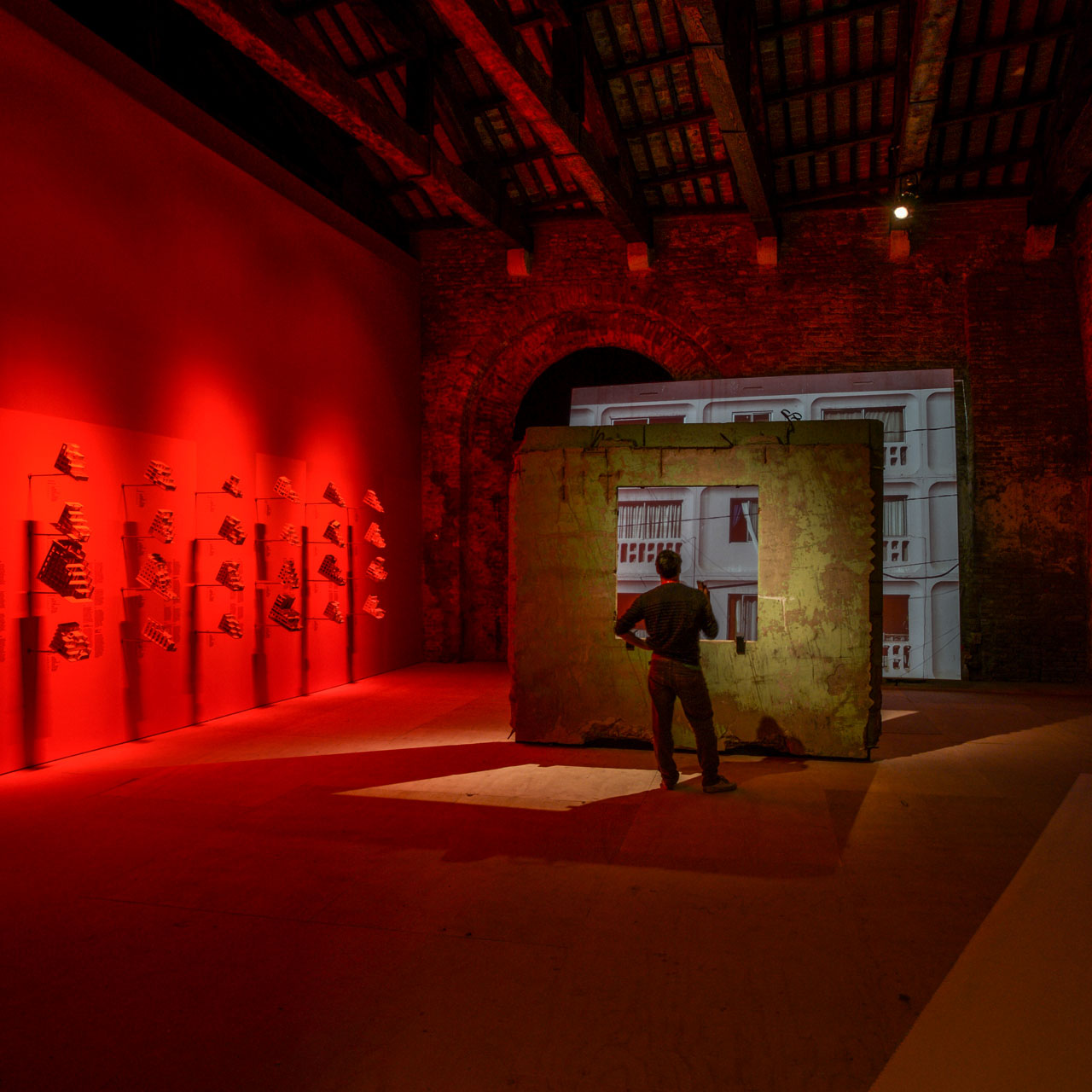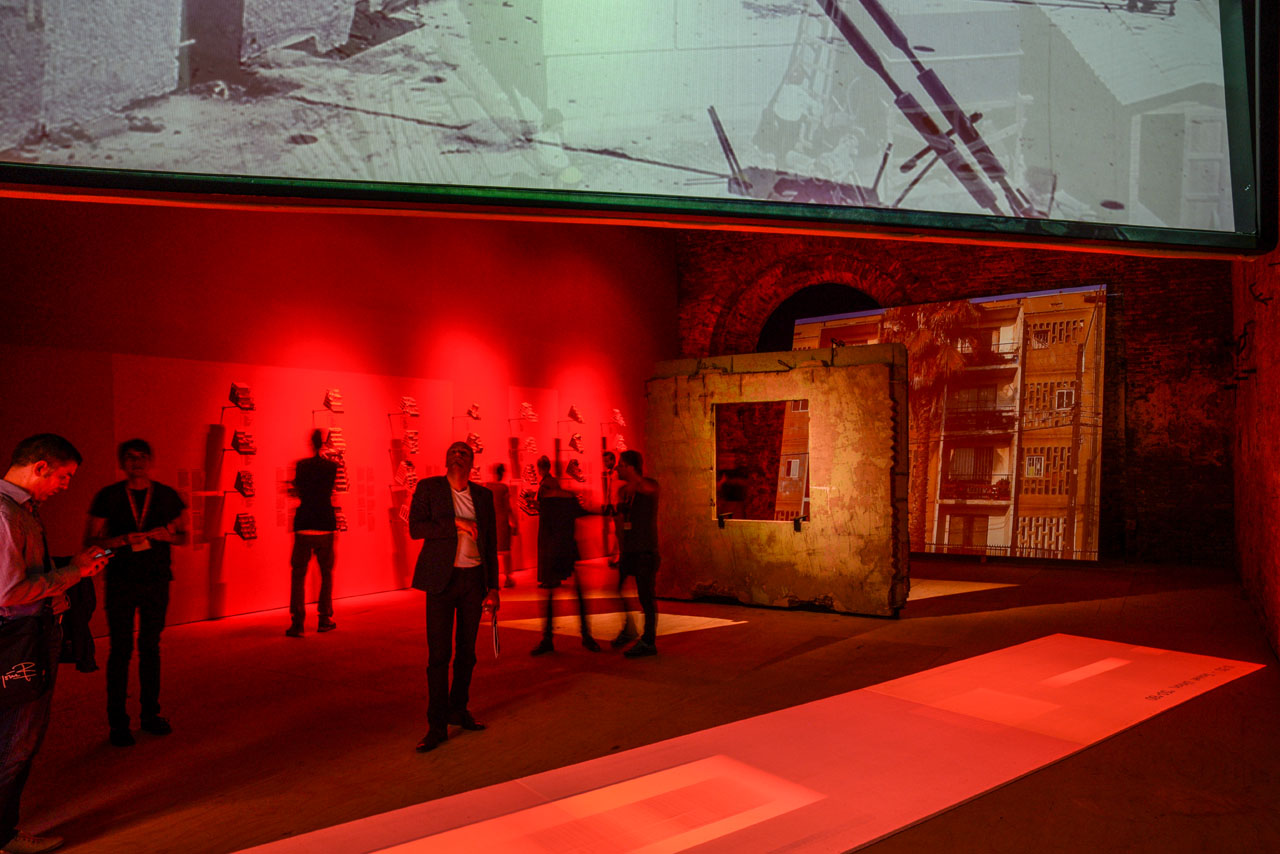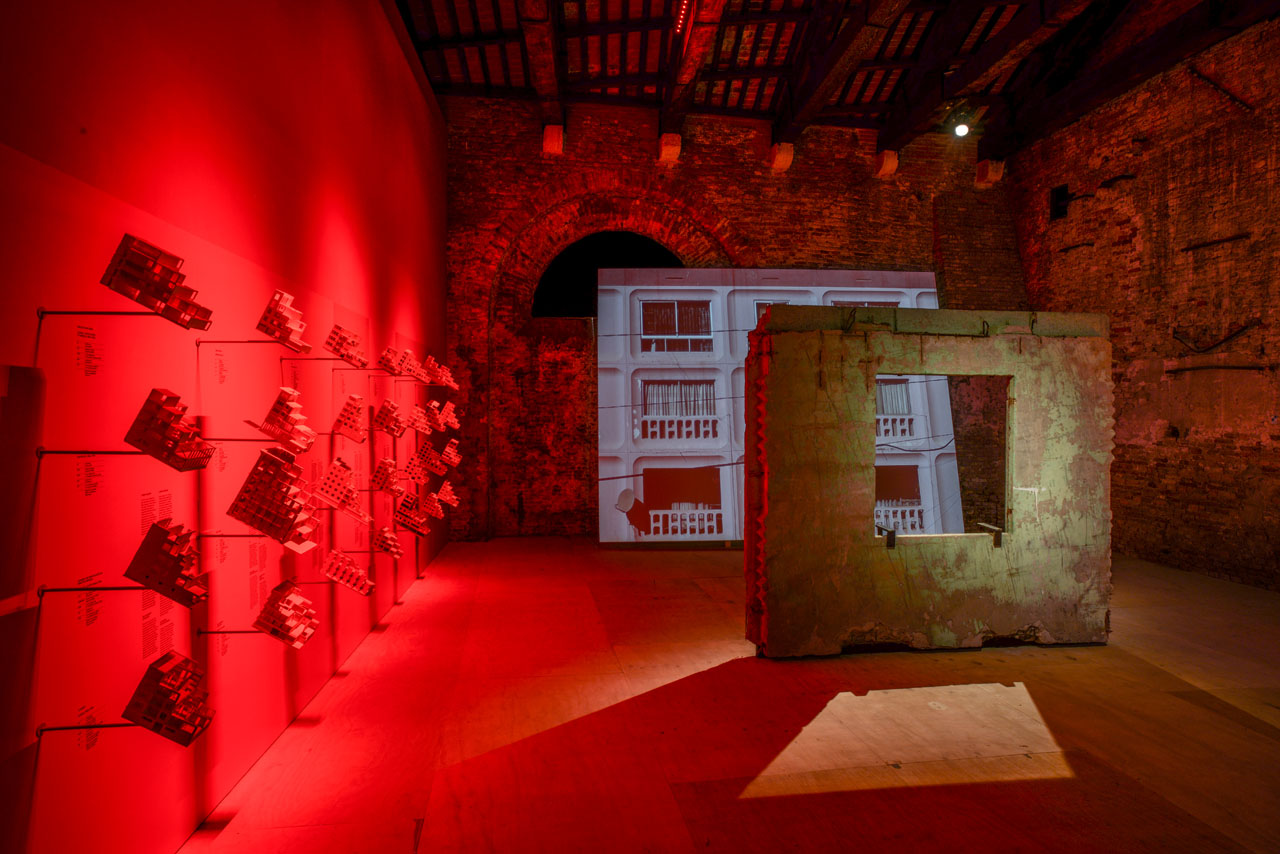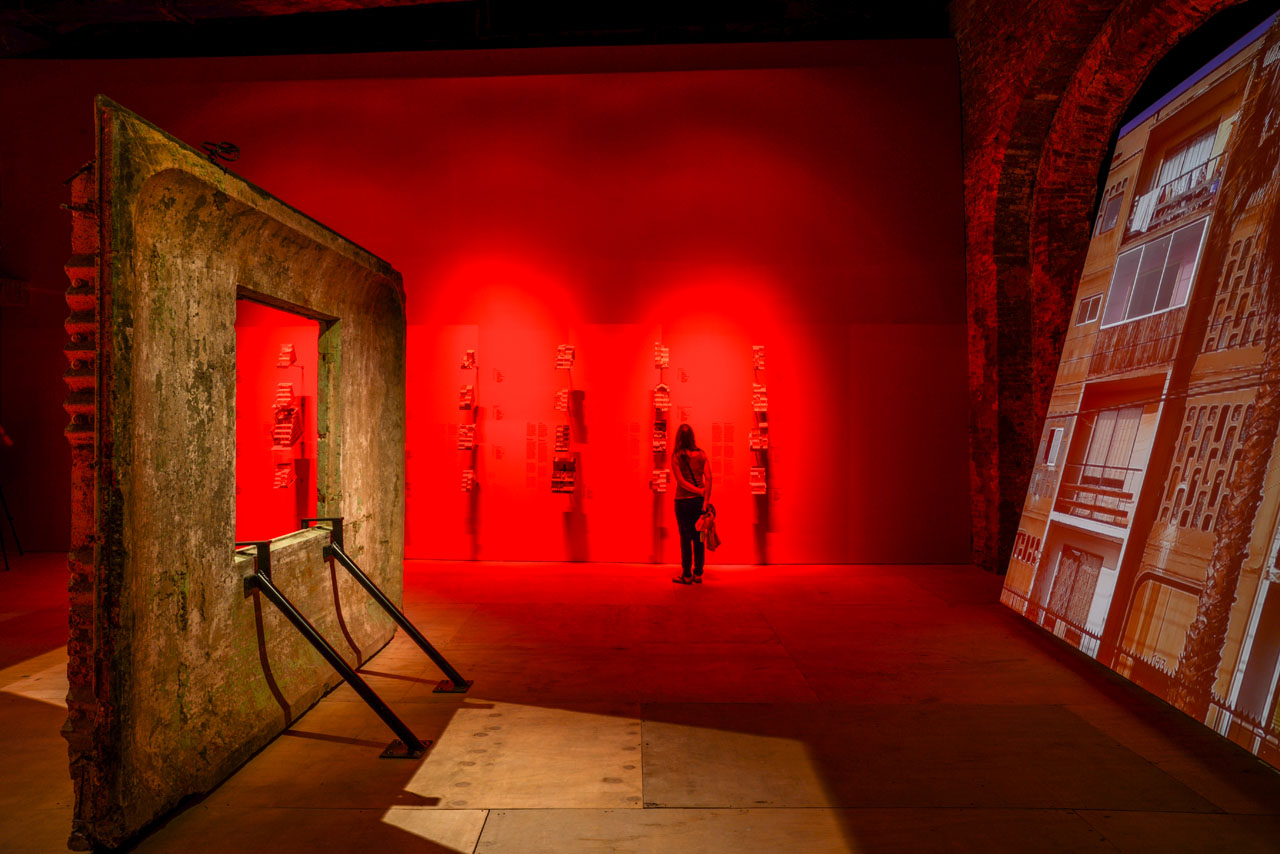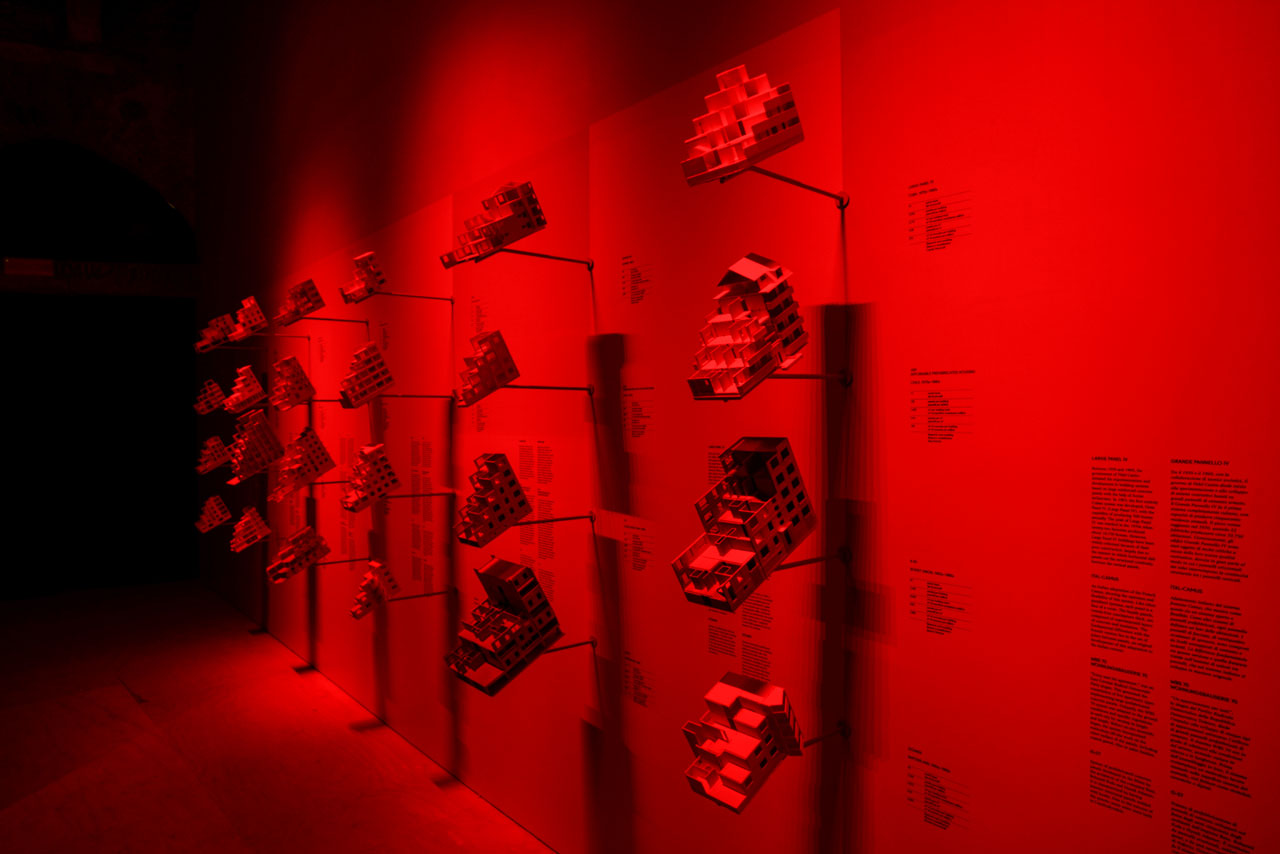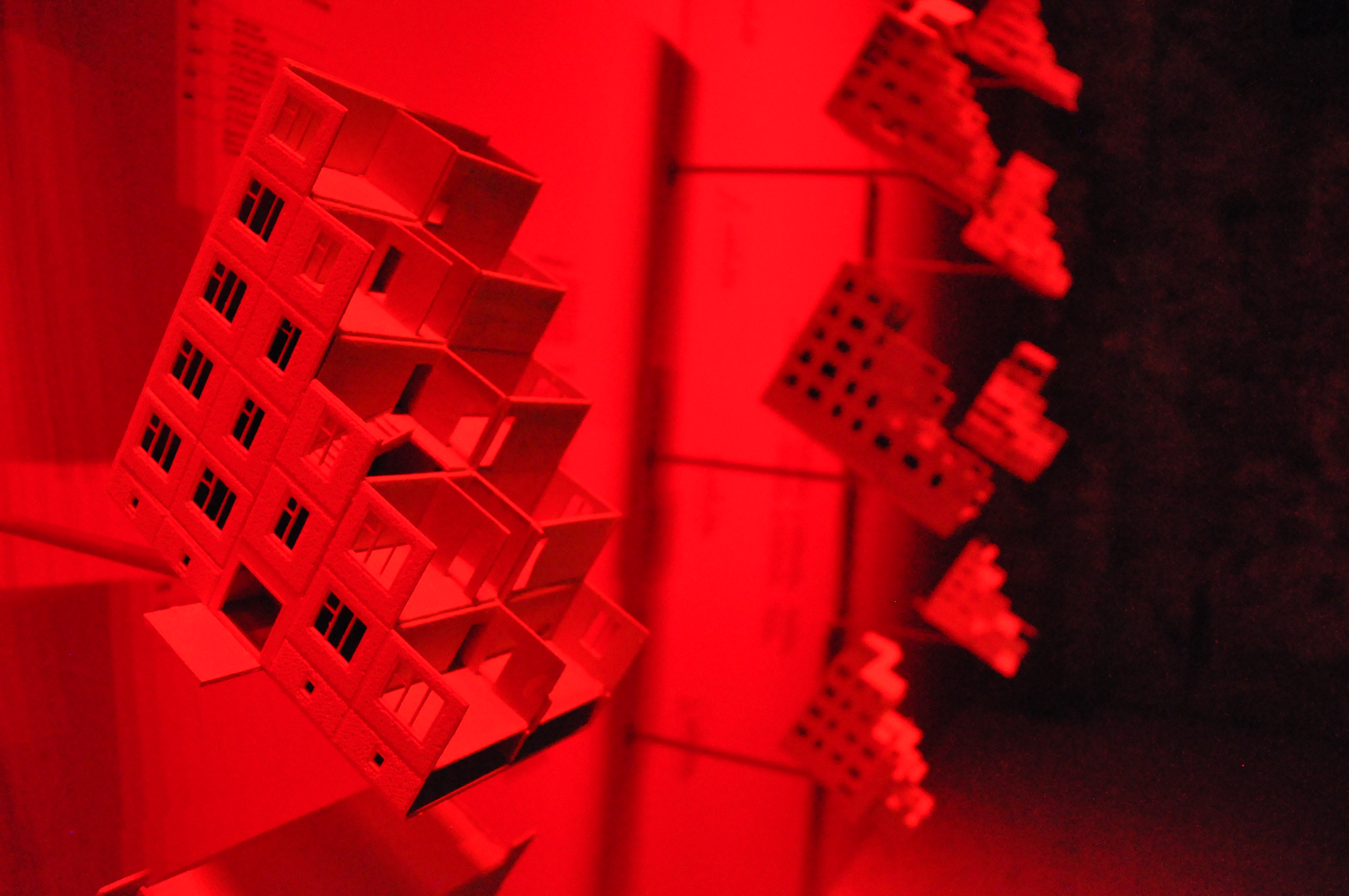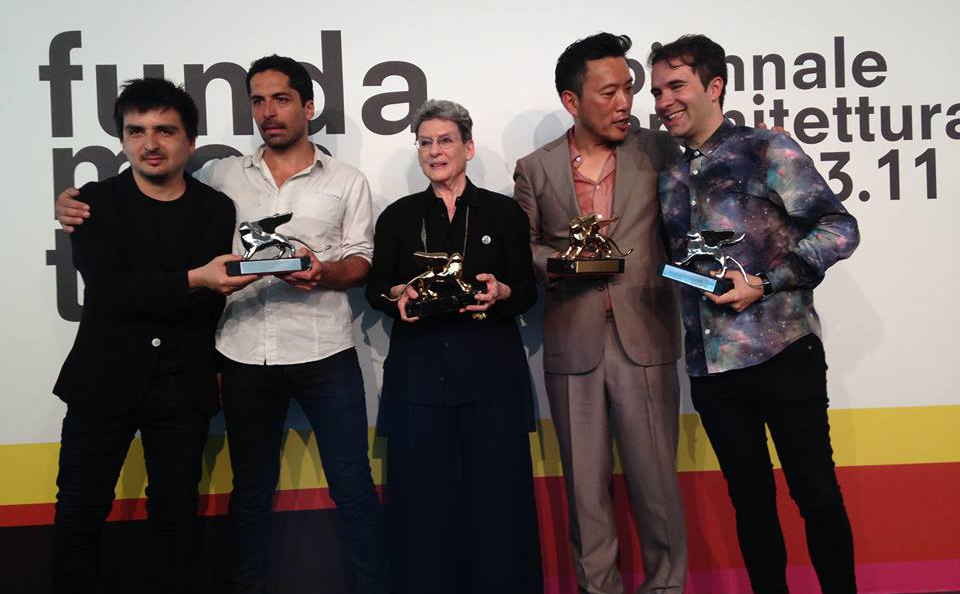MONOLITH CONTROVERSIES
Pavilion curators: Pedro Alonso and Hugo Palmarola
Upright but isolated, a large-concrete panel stands at the centre of the Chile Pavilion. This was one of the first panels to come off the assembly line at the KPD plant – a factory which produced prefabricated housing, and which had been donated by the Soviet Union to Salvador Allende’s Chilean government in 1972. The same panel has since been the subject of several political and ideological controversies, especially after Allende himself inscribed his signature into its wet cement – a gesture that was later rendered over during Augusto Pinochet’s military dictatorship heralding a period that saw the panel transformed into a Catholic icon, with the addition of a Madonna and Child, and two colonial style lamp fittings. Today the panel seems free of both presidential signatures and virgins, but they are still somehow there under its patinated surface, and through these inner resonances, this now monolith is presented as a ruin of modernity, both architectural and political. The panel is surrounded by the technical, typological and conceptual reconstruction of twenty-eight large concrete panel systems developed worldwide between 1931 and 1981. Within the historiographies of modern architecture, such a building tradition represents a relatively marginal position, despite the fact that more than 170 million concrete panel apartments were built during the second half of the twentieth century. Lacking the leading figure of the author in conventional terms, the story of this panel tells about the one figure that came to replace the individual architect, the anonymous worker.
The National Council of Culture and the Arts of Chile commissions Monolith Controversies, the Chile Pavilion atFundamentals, the 14th International Architecture Exhibition – la Biennale di Venezia, directed by Rem Koolhaas (June 7 to November 23, 2014).
- Commissioner: Cristóbal Molina (National Council of Culture and the Arts of Chile)
- Pavilion design: Gonzalo Puga
- Visual identity: Martín Bravo
- Production team: Felipe Aravena, José Hernández
- Multimedia: Francisco Hernández, Micol Riva
- Communication: Marcela Velásquez
- Pavilion production and setup: Luigi D'Oro & Arguzia s.r.l.
- Organizer: National Council of Culture and the Arts of Chile
- Supporters:
Fundación Imagen de Chile
DIRAC
CSAV
SAAM
© Gonzalo Puga
© Gonzalo Puga
© Gonzalo Puga
© Gonzalo Puga
© Gonzalo Puga
© Gerardo Köster
